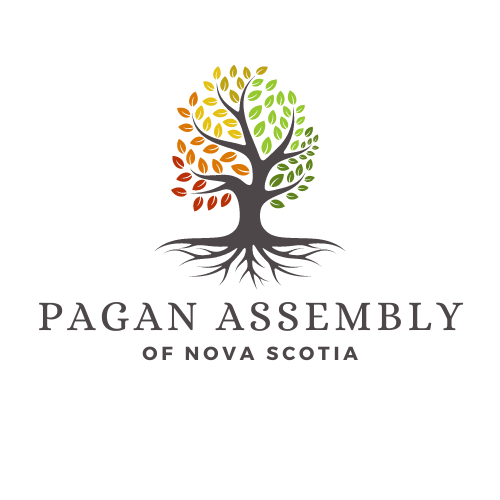Imbolc
I was born and raised in the beautiful south of England, my ancestral homeland filled with a rich history of Pagan practice. Although I have travelled to many countries in my life, it was only when I settled in Canada that I realized how much of my own personal practice was tied to the shifting seasons of my homeland. No longer could I welcome Imbolc with the snowdrops, count the crocuses and daffodils at the Spring Equinox and smile at the beauty of flowering hawthorn at Beltaine. Imbolc did not always feel like the earth was shifting, Spring Equinox did not always feel like spring, and the harvest festivals were not always reflective of the actual harvest times.
The Witches Sabbats, rituals and practices are so closely connected to the agricultural calendar of the British Isles and Celtic influence, that with distance my perspective widened and my understanding deepened. The Witches Sabbats are important markers throughout the year for many Pagan paths, guiding our practices and encouraging our ever-shifting perspectives to focus on personal spiritual growth. Although our landscapes and environments may differ, the deeper meanings of each Sabbat provide foundational understandings that we can build upon with knowledge and wisdom.
Imbolc, (also referred to as Imolg, Oilmelg, Oimelc, or the Feast of Poets), is a Cross- Quarter festival typically celebrated on the 1st of February. It explores the reawakening earth and the increasing light; the re-emerging Maiden Goddess, Feminine Divine, Creativity, and Poetry. The literal meaning of Imbolc is “In the belly” and it is deep in the belly of the earth that life now stirs. We may not be able to see the changes in nature yet, but the world around us is pregnant with potential. This is the underlying energy of Imbolc – Potential. At this time of year, we bring forth the intuitive unconscious energy and the wisdom of introspection that we have gained over winter and harness it to the active intellect of the conscious mind. This union of two different energies is the key to manifestation and spiritual growth.
Imbolc falls into the middle of an air sign, Aquarius, which is associated with communication and inspiration; and I believe that the energetic themes of Imbolc can be readily explored through the many myths, legends and stories of the Gods. In many traditions, we honour the deities of poetry and inspiration and celebrate the bards who share ancient wisdom, ancestral memories and magical teachings through the sacred art of story-telling.
In ancient myths, we hear of Persephone rising from the Underworld, bringing with her knowledge of seasons and cycles, the wisdom of balance, and the potential of new life. In Celtic traditions, we honour the Maiden aspect of the Triple Goddess Brigid. A goddess who is the Keeper of the Sacred Fire and the spark of life and inspiration, Brigid is also the goddess of the living waters whose springs and wells are sacred sites. On the eve of Imbolc, Brigid awakens the sleeping serpent and encourages him to leave his hole deep in the earth and in doing so, she brings forth fertility to the land. We celebrate the goddess Freya, the virgin aspect of the Nordic Triple Goddess, who represents deep sexual love and whose alternative name ‘Frigg’ has become a slang term for sexual intercourse. Within myth and legend, we explore the relationship between the masculine and feminine, we delve into the mysteries of the sacred feminine, and we acknowledge the complex duality of purity and sexuality. Virgins, Maidens, young Sun Gods; deities of love, sex and fertility; and deities of poetry, passion and prose, are all honoured at this point of the wheel.
This ancient festival of Imbolc was also incorporated into early Christian calendars as Candlemas on the 2nd of February, a festival of emerging light and the purification of the Virgin Mary. Although some of the same spiritual threads are woven into Candlemas, the removal of the Maiden/Virgins sexual energy creates a very different tapestry of faith. The wonder of festivals that utilise candles is the deeply spiritual concept of sharing our light with others, of how one candle will not lose itself by lighting others and indeed how even a small flame can hold back the darkness. Interestingly, the word Candle is closely related to the words “Cande” in Anglo-Saxon and “Candali”, “Kundali”, and “Kundalini” in Sanskrit, which are all related to the rising of sexual energy throughout the body and deeply entwines candle flames with passion, sexuality and the fever (or ‘Febris’) of love.
This time of year is the setting for many stories of love and sex, myths of youth and vitality, and legends of journeys and quests that abound in ancient lore. Maybe it is because the land around us still shivers in winter’s grip, and yet also offers us glimpses of nature’s fertility and forthcoming bounty. A hint of life to come. Imbolc is the quiet moment of almost imperceptible change, a tipping point in our ever spiralling journey. It is a moment of stillness poised between one world and another, and the split-second of wonder when potential energy becomes kinetic energy. It is the time when our minds emerge from winter introspection and turns our attention outwards with a restless energy that desires passion, creativity, social and sexual interactions. Use the energy of Imbolc to learn new skills, be more creative, expand upon your passions and deepen your understanding of love, sex, relationships and self-care. Imbolc is a time outside of time, a moment of magic, the pause before the first step of your new journey. Treat your life as your quest, and your journey will be another myth in the making.
Bright Blessings,
